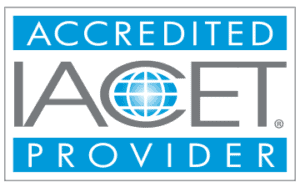In this blog post, Start Early (formerly the Ounce) policy analyst Kayla Goldfarb, shares parents’ and caregivers’ perspectives on rebuilding and recovery post COVID-19, including specific thoughts on economic security, community mental health and parent advocacy and engagement.
The impact of the COVID-19 pandemic on families and caregivers has been both broad and deep. The extent of economic, social and physical and mental health consequences, to name a few, is still unfolding, while daily life remains profoundly changed for families with young children at home. Yet, as a group of Educare families shared during a May 2020 Build It Back Better dialogue, despite the challenges presented, critical opportunities exist for the rebuilding of our early childhood system to better adapt to and support the needs and goals of families with young children.
Parents and caregivers continue to be concerned about economic security and the availability of both financial assistance and regulatory protections afforded as part of federal COVID-19 relief. As the broader economic effects of the pandemic have overloaded federal and local safety nets, families with young children who relied on public benefits prior to the health crisis have found it increasingly difficult to access supports and basic needs. For example, families who rely on the SNAP program, shortages at grocery stores and a strain on traditional community support systems like food depositories have created a barrier to receiving benefits. Similarly, for families struggling to pay rent, confusion over the patchwork of federal, state and local eviction-protections and the availability of legal recourse has left some families concerned over whether their landlords can still pressure them to pay rent.
For those enrolled in Medicaid, a lack of access to individual mental health services and other support systems has placed an added burden on the ability of families to cope with COVID-19-related pressures. Likewise, parents continue to be concerned about the developmental impacts and mental health needs of their young children who may not understand the changes to daily life. Reflecting on their current experience with early childhood programs, parents expressed a desire for more extensive community mental health services to attend to the needs of the whole family.
“I would like to see more community group therapy work because it’s not affordable when its one-on-one,” Janelle Jenkins, an Educare Denver parent, said. “There are a lot of families that could just use a boost, pulling out strengths and helping them to realize their potential — that’s all they need to get started and for their family to be successful.”
Additional concerns are top of mind for parents and caregivers as they contemplate the “reopening” of their states and return to work. The disruption of routine child care is particularly concerning for parents in essential sectors, like child care, who must now contend with where their own young children will be when they are required to return to work.
“The safety, financial stability, wondering where I am going to put my children in the event that I have to open up earlier, and they have a different tentative date to open?” Toshiba Davis, an Educare Oklahoma City parent and home child care provider, questioned.
While eager to provide support to families and children in their essential roles, reopening means risking the health and safety of their own families. This added, unique tension for caregivers and educators is exacerbated over uncertainty of what safety measures, including class sizes, PPE and business hours, will be in place when services reopen.
“When I do welcome the families back in, am I putting my own family at risk? Those are the things that worry me,” Toshiba shared.
As data continue to reveal the disproportionate health impact of COVID-19 on Black, Indigenous and Latinx communities around the country, we clearly see profound equity issues for the early childhood workforce, which is comprised almost exclusively of women, 40% of whom are people of color.1
Despite these pressing COVID-19 related concerns, parents and caregivers remain focused on the ways in which stronger two-generational supports can more holistically address the needs and desires of families, in times of crisis and beyond.
“In order for our children to have hopes and dreams, parents need to have hopes and dreams,” Toshiba exclaimed. “I would love to see parents in my community get more education, […] so they can be advocates for their own children, because nobody can advocate for your child like you can. But, you’ve got to have the knowledge and the know how to do it.”
Parents and caregivers envision an expanded network of resources outside of the walls of their early learning and care environments, including after school and summer programming and robust math and financial literacy resources, to enable children to reach their potential from their earliest years.
“Financial literacy and education are very important — that’s my hope. It should be in all schools from the time they’re age 0 to 3”, Ealasha Vonner, an Educare Denver parent, said. “That’s my hope and dream because if we did have that in our schools, we would be better off right now.”
Build It Back Better is a project of Start Early focused on identifying the critical questions that early childhood systems and services must ask as we rebuild after the COVID-19 pandemic. The writings that emerge from the initiative center the experiences and voices of those most directly and disproportionately affected by the pandemic’s impact on early care and learning. Join the conversation at the Early Child Connector’s Recovery and Rebuilding Hub.
Kayla Goldfarb is a policy analyst at Start Early, focusing her work primarily on home visiting and providing staffing support to the Home Visiting Task Force, a standing body of the Illinois Early Learning Council. She holds a Master of Public Policy degree from the Humphrey School of Public Affairs at the University of Minnesota.
1 Austin, Lea JE, et al. “Racial Wage Gaps in Early Education Employment.” (2019).
https://cscce.berkeley.edu/files/2020/02/RacialWageGaps-Early-Education-Brief.pdf

